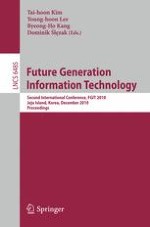2010 | OriginalPaper | Chapter
An Introduction to Perception Based Computing
Authors : Andrzej Skowron, Piotr Wasilewski
Published in: Future Generation Information Technology
Publisher: Springer Berlin Heidelberg
Activate our intelligent search to find suitable subject content or patents.
Select sections of text to find matching patents with Artificial Intelligence. powered by
Select sections of text to find additional relevant content using AI-assisted search. powered by
We discuss basic notions of Perception Based Computing (PBC). Perception is characterized by sensory measurements and ability to apply them to reason about satisfiability of complex vague concepts used, e.g., as guards for actions or invariants to be preserved by agents. Such reasoning is often referred as adaptive judgment. Vague concepts can be approximated on the basis of sensory attributes rather than defined exactly. Approximations usually need to be induced by using hierarchical modeling. Computations require interactions between granules of different complexity, such as elementary sensory granules, granules representing components of agent states, or complex granules representing classifiers that approximate concepts. We base our approach to interactive computations on generalized information systems and rough sets. We show that such systems can be used for modeling advanced forms of interactions in hierarchical modeling. Unfortunately, discovery of structures for hierarchical modeling is still a challenge. On the other hand, it is often possible to acquire or approximate them from domain knowledge. Given appropriate hierarchical structures, it becomes feasible to perform adaptive judgment, starting from sensory measurements and ending with conclusions about satisfiability degrees of vague target guards. Thus, our main claim is that PBC should enable users (experts, researchers, students) to submit domain knowledge, by means of a dialog. It should be also possible to submit hypotheses about domain knowledge to be checked semi-automatically. PBC should be designed more like laboratories helping users in their research rather than fully automatic data mining or knowledge discovery toolkit. In particular, further progress in understanding visual perception – as a special area of PBC – will be possible, if it becomes more open for cooperation with experts from neuroscience, psychology or cognitive science. In general, we believe that PBC will soon become necessity in many research areas.
